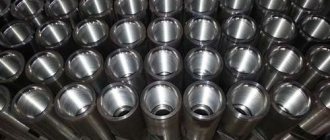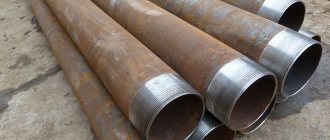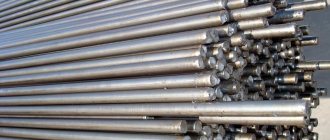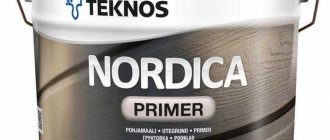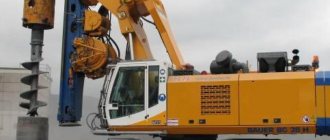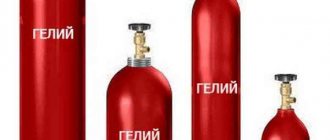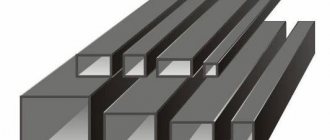Special pipes are used to equip oil wells, supply water to a personal or summer cottage, and also to solve a number of other problems. The requirements that the casing pipe must meet are specified by the state standard. For pipes made of metal, this standard is GOST 632-80.
Casing steel pipes for wells
Characteristics of casing pipes
Well casing, which can be made of steel, cast iron and plastic, is used to protect the walls of wells from crumbling earth. The area of use of such pipes is quite wide: country and household water supply systems, oil fields. Casing-type pipes are also used in various industrial enterprises.
For domestic needs, plastic casing pipes are mainly used, as well as products made from cast iron, steel, asbestos cement and even wood. Steel products are used as casing pipes for industrial wells, and recently plastic pipes have become increasingly common. The reason for this popularity is the high performance characteristics of plastic casing pipe.
Casing pipes for wells of different diameters
Any pipes used as casing, regardless of what material they are made of, what their wall thickness is, thickness variation, ovality and cross-sectional parameters, must meet the requirements for permissible non-straightness per meter of their length. Similar requirements for steel casing pipes, in particular, are stipulated by GOST 632-80. So, for high-precision pipes, this indicator should be:
- up to 0.5 mm - for products with a diameter of 108–146 mm;
- up to 0.3 mm - for products with a diameter of 33.5–89 mm.
For casing pipes belonging to the category of products of ordinary precision, this figure should not exceed 0.7 mm per meter of their length.
A separate category consists of casing pipes for the construction of water wells, made of asbestos cement. They have fairly thick walls, but at the same time they are distinguished by high fragility. Their great advantages are their affordable cost, as well as a long service life, provided they are installed correctly. Before using such products, you should carefully read the rules for connecting them. In addition, it is important to know that for drilling wells in which it is planned to install asbestos pipes, you should use a drill of a larger diameter than that provided for in the project.
Asbestos cement casing pipes
When drilling in unstable soil, only steel casing pipes should be used, which can successfully withstand even significant soil pressure. By the way, metal casing pipes, the requirements for which are specified by GOST 632-80, can be successfully operated for up to 50 years. Of course, they also have disadvantages: they are quite expensive, susceptible to the formation and development of corrosion processes. Despite these disadvantages, metal pipes are used quite actively, since they simply cannot be replaced in some situations related to both the complexity of the designed well and soil instability.
Use of pipes for bored supports
Casing parts are widely used in the construction field. Here they are used for bored supports, which are made by concreting a finished well. The diameter of this design can be from 300 to 1500 mm. The most popular are products with a diameter from 300 to 600 mm.
For installation of bored piles, a sectional type casing pipe is used. The connection of this design occurs using threads. The lower section of such a column has a special drilling element that passes through the soil during drilling. The casing parts are installed using mobile drilling machines (MDMs).
Casing pipes with bored piles are used in construction in difficult conditions
In addition, there are types of bored piles that are made by hand. Using such a manual installation, you can drill a well with a depth of up to 3 m and a diameter of up to 30 cm. In this case, the role of the casing pipe is usually played by rolled roofing material, which is used to line the walls of the well or ordinary plastic casing parts.
Reasons for the popularity of plastic pipes
Plastic casing pipes for wells, which are becoming increasingly popular, are divided into the following categories:
- made of polypropylene;
- made of PVC;
- made from low density polyethylene.
Polypropylene casing pipes for wells
Plastic pipes for wells have the following characteristics:
- the ability to achieve exceptional tightness at joints;
- the ability not to be subjected to corrosion processes, which steel casing cannot boast of;
- affordable price;
- a light weight;
- the possibility of successful and long-term operation even under conditions of exposure to an aggressive environment;
- simplicity and low cost of installation.
When deciding which pipe to choose for a well - plastic or metal - you should also take into account the disadvantages of plastic products, the most significant of which include:
- low mechanical strength compared to steel and cast iron pipes;
- inability to withstand significant both static and dynamic loads.
As follows from the characteristics of plastic pipes, it is better to choose them in cases where wells are drilled to shallow depths and operated under gentle conditions. Such wells, in particular, are drilled for domestic water supply systems. If you choose which pipes are best for a well, based on the ratio of their price and quality characteristics, then plastic products fully meet this requirement.
Types of products and requirements for technical characteristics
Inventory casing pipes used in drilling operations are subject to a number of requirements, in accordance with which they must
:
- not have deviations in geometric dimensions exceeding the norms allowed by the assortment;
- withstand high force loads of both longitudinal and transverse action;
- have an inexpensive and reliable system for joining into a single column of separate sections;
- have high corrosion resistance.
Inventory casing pipes are made from different materials:
- unplasticized polyvinyl chloride;
- low density polyethylene;
- polypropylene;
- black and high-alloy steel.
But most of all, these requirements are met by rolled steel pipes, which can withstand heavy loads, have high strength and tightness of connecting elements in columns of any length.
In addition, the main fleet of drilling machines is adapted for working with rolled steel.
Types of steel products
Manufacturers offer two types of steel pipes for drilling
:
- single-walled (cased) - standard design. Inventory casing pipes with a single-wall structure are characterized by high manufacturability in assembly, an accelerated rate of loading and pumping out of concrete solution, which helps reduce the time required for drilling work;
- double-walled - reinforced modification. Resistance to high levels of loads is ensured by a two-layer wall, consisting of a smooth layer on the inside and reinforced with spiral-shaped pipe stiffening ribs on the outside.
Pipes of both types are produced in sections of different lengths of 1 - 6 m and are joined together
:
- welded method;
- connection according to the Bauer type, “plug - bolt”;
- machine "Benoto", Casagrande, Kato, etc.
If pipes with different diameters are combined into a casing system when installing bored piles, then lowering inserts are used.
Important!
The technical conditions for the production of inventory casing pipes made of steel alloys and the range of standard sizes are regulated by GOSTs 632-80 and 53366-2009, API Spec 5CT and a number of industry specifications. Profile sizes and contents
| Ratio of external and internal diameter, mm | Wall thickness size, mm | Number of connecting elements “plug – bolt”, pcs. | Connection type according to BAUER |
| 600/520 | 40 | 8 | 1 |
| 620/540 | |||
| 700/620 | |||
| 730/650 | |||
| 750/670 | 10 | ||
| 800/720 | |||
| 880/800 | |||
| 1000/920 | |||
| 1080/1000 | |||
| 1180/1100 | 12 | ||
| 1200/1120 | |||
| 1280/1200 | |||
| 1300/1220 | |||
| 1480/1400 | 2 | ||
| 1500/1400 | 50 | ||
| 1700/1600 | |||
| 1800/1700 | 16 | ||
| 1900/1800 | 16 | ||
| 2000/1880 | 60 | 12 | 3 |
| 2100/1980 | |||
| 2200/2080 | |||
| 2500/2380 | 16 |
Important.
When placing an individual order, it is possible to produce inventory casing pipes of a larger diameter and in any configuration. The set of casing inventory pipe includes a knife group, which takes on the most significant part of the loads when destroying soil layers.
The knife section has welded or replaceable teeth designed to protect the casing walls from abrasion.
To connect the rotation drive shaft of the drilling unit and the casing, a special adapter is used - a dreiteller.
How to choose a casing pipe for a well
The most important parameter of the well - its productivity - will depend on how correctly the diameter of the casing pipes is chosen. Guided by the desire to get a larger water flow, many try to select a casing pipe for a water well of the maximum diameter. This approach can only lead to the fact that well casing will result in serious financial costs.
You can avoid unnecessary costs for the purchase of casing pipes without losing the productivity of the well if you perform preliminary calculations and determine which pipe (with what diameter) will allow you to obtain water from the well in an amount sufficient for both watering green spaces and household purposes. Before proceeding with such calculations, it is necessary to determine the maximum water flow that will satisfy the owner of a dacha or country house.
Well using plastic casing
Let's look at the algorithm for determining this parameter. It has long been established that if the tap is opened completely, then about 0.7 cubic meters of water will flow out of it in an hour. In any country house, as a rule, water is spent for the following purposes:
- for the operation of plumbing equipment in the toilet;
- in kitchen plumbing equipment;
- to ensure the operation of the washing machine.
Water in country houses and dachas is also used for watering green spaces, which should also be taken into account. Taking into account all these factors, we can say with confidence that the maximum water flow will be about 3 cubic meters per hour. To ensure this flow rate, it is best to use a submersible pump with a casing diameter of 75 mm.
Now, in order to calculate what cross-section a metal or plastic pipe for a well should have so that such a pump can be installed in it, it is necessary to add a number of parameters to its diameter: the thickness of the pipe walls (for steel products - 6 mm), the gap that is required leave between the inner walls of the pipe and the pump housing. If in the calculations we take into account the size of such a gap, equal to 4 mm, then in the end we find that we need a pipe with a cross-sectional size of at least 87 mm. It is necessary to select a product with a standard cross-section (GOST 632-80 or another regulatory document will help with this), as close as possible to the value we calculated. In our case, this will be a casing pipe for wells, the cross-section of which is 89 mm.
